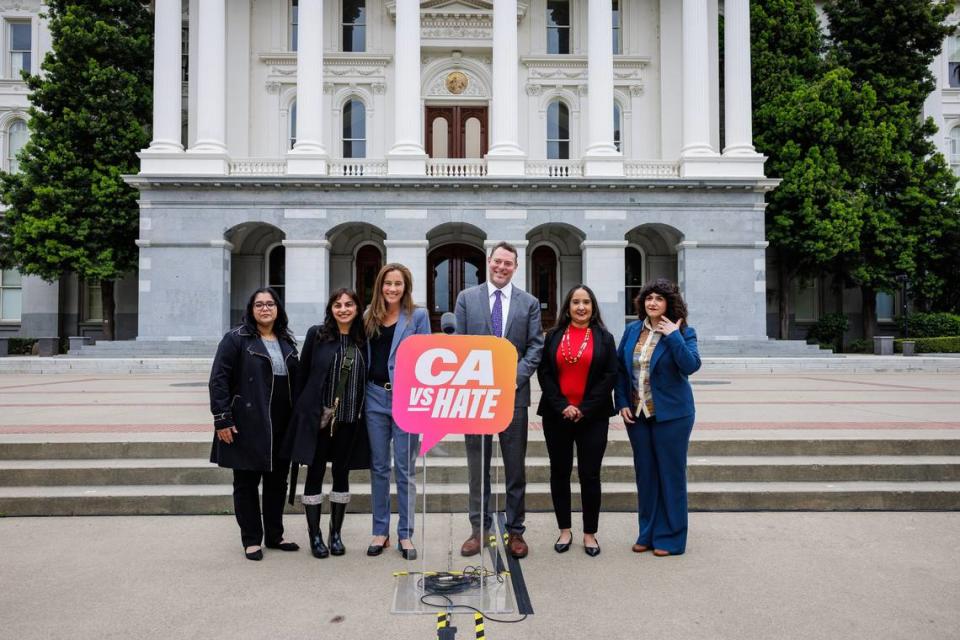New California hotline lets you report hate crimes and acts anonymously. Here’s how
The new California vs Hate network serves as a free hotline for all victims and witnesses of hate incidents and hate crimes to report anonymously and receive free support services.
In an effort to make California a safer and more inclusive environment for all, California vs Hate has partnered with other organizations to help protect diverse communities, according to its website.
“This network is a direct response to the rise in reports of hate incidents and crimes,” said Kevin Kish, director of the California Civil Rights Department.
Kish said only law enforcement can respond to crimes, but this program can help people connect with police or access supportive resources.
There was a 33% increase in reported hate crimes from 2020 to 2021, Kish said.
Within its first month, the hate hotline recorded 180 reports across the state. add
Goals of California vs Hate

This program was created to help people who don’t know what they should do in response to a hate act or crime.
Hate acts differ from hate crimes in that they do not require law enforcement.
“We don’t care if a crime has been committed,” Kish said. “Because you don’t have to be a legal expert to need help and to get help through this network.”
According to the California vs Hate website, the network’s goals are to:
▪ Help communities targeted by hate
▪ Find options to address hate acts
▪ Connect people with resources
▪ Improve hate incident reporting
▪ Enhance prevention
What is a hate act vs a hate crime?

A hate act is a hostile expression or action that may be motivated by bias against another person based on:
▪ Race
▪ Color
▪ Disability
▪ Religion
▪ National origin
▪ Sexual orientation
▪ Gender (or gender identity)
Some examples include derogatory name calling, bullying, hate mail and refusing service.
A hate crime is often a violent crime, including assault, murder, arson, vandalism, or threats to commit such crimes, according to the United States Department of Justice website.
Hate acts differ from hate crimes in that they do not require law enforcement.
If someone is not sure if they have been a victim but they perceive they have been targeted, Kish said they should report.
“What’s important is that a person felt that way. We can connect them with resources,” Kish said.
Those who report will be contacted by a care coordinator who will follow up with access to resources and support, including legal, financial, mental health and mediation services, according to the website.
“Many of the programs that we are helping people connect with are free, but there could be charges for some of them,” Kish said. “We just want to connect people with options.”
Where can I report a hate act?

Victims or witnesses in California can report it online on the California Civil Rights Department’s website. Reports are currently available to submit online in 15 languages, according to the website.
You can also call 833-8-NO-HATE, or (833) 866-4283, Monday through Friday from 9 am to 6 pm.
“If you call, we are within our goal to answer within three minutes,” Kish said. “The first thing we are going to identify is what language you speak.”
After those hours, you can call 211 to report a hate act. If you are in present danger, call 911.
When you call the hotline, you can get help in more than 200 languages.
“We’re trying to lower barriers, so the language aspect is very important to us,” Kish said. “You can report anonymously and give us any information about what happened.”
What do you want to know about life in Sacramento? Ask our service journalism team your top-of-mind questions in the module below or email servicejournalists@sacbee.com.


